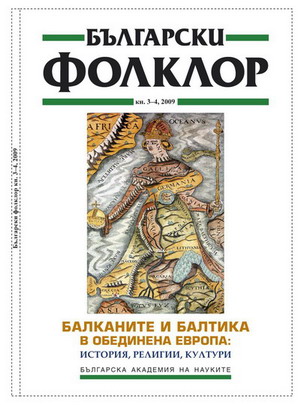Религиозните ценности сред литовците: сравнително изследване
Religious Values of the Lithuanians: Comparative Study
Author(s): Stanislovas JuknevičiusSubject(s): Anthropology
Published by: Институт за етнология и фолклористика с Етнографски музей при БАН
Summary/Abstract: The first issue of the paper deals with religious values of the Lithuanians in a European Context. With respect to the role of religion in post-Soviet Lithuania two opposing hypotheses are possible. On the one hand, it can be expected that, after the end of the compulsory atheism of society and after considerable growth in church activity, religiosity in Lithuania will increase. On the other hand, in view of comprehensive Lithuanian efforts to integrate into Europe, where secularization is an important feature of cultural development, a decline in religiosity is also possible. The research didn’t support either of these hypotheses. Although church attendance in Lithuania has in¬creased, it is still less than the average in Europe, not to mention traditional Catholic countries. Some people who believe in God but do not participate in religious services often do not consider themselves religious, while others do consider themselves to be such, even though they do not believe in God, because they sometimes participate in religious services. The second issue deals with the classification of European countries according to religiosity. Six groups of countries are distinguished: countries of strong religiosity (Malta), countries of strong traditional religiosity (Ireland, Poland), countries of traditional religiosity (Italy, Croatia, Romania, Portugal), countries of strong inert religiosity (Greece, Spain, Germany, Austria, Finland, Slovakia, Latvia, Hungary, Ukraine, Russia, Bulgaria, Lithuania), countries of inert religiosity (Sweden, Denmark, Netherlands, Belgium, Luxembourg, Switzerland, Iceland, Slovenia) and nonreligious countries (Great Britain, France, Norway, Czech Republic, Estonia, Belarus).
Journal: Български фолклор
- Issue Year: XXXV/2009
- Issue No: 3-4
- Page Range: 146-152
- Page Count: 7
- Language: Bulgarian
- Content File-PDF

